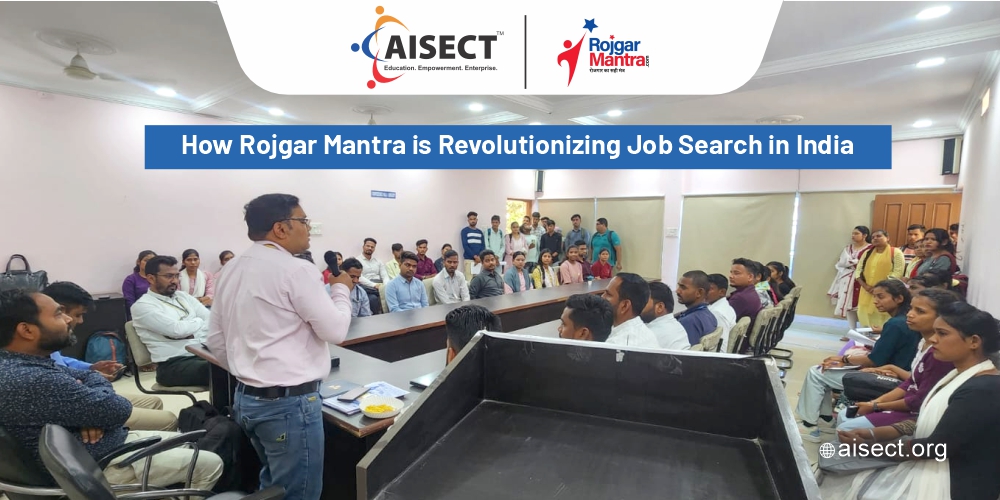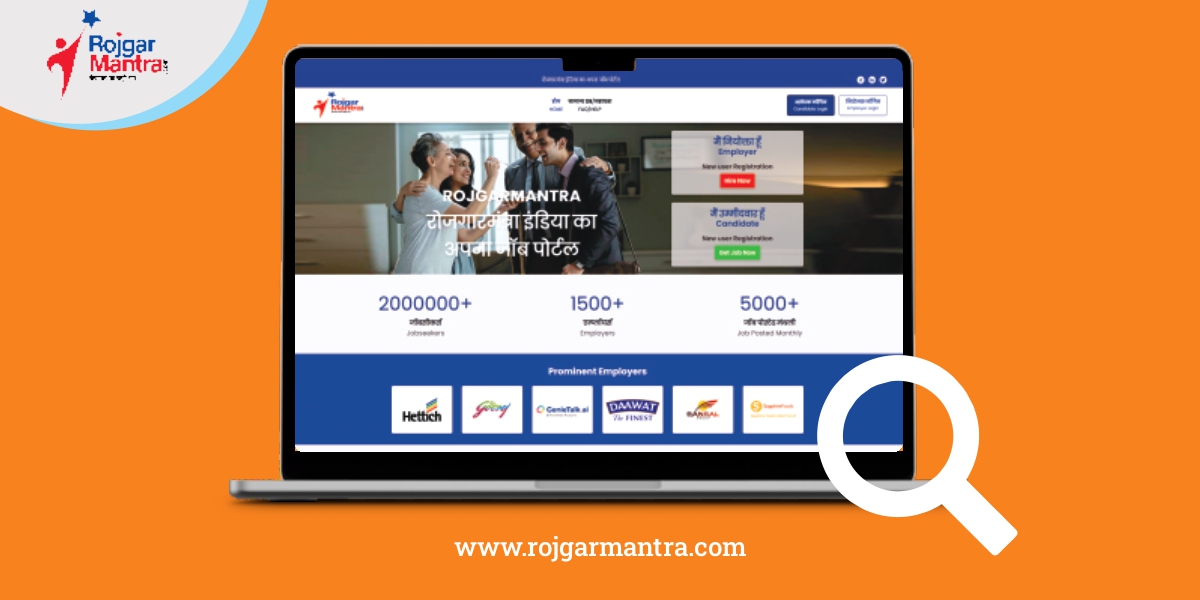Introduction
Starting a job search right after graduation can be overwhelming. Every week, around 40 million people search for jobs on LinkedIn, many of them being recent graduates. The variety of options can be overwhelming and thus you can end up confused and stuck with the application process if you do not have a clear plan.
Rojgar Mantra makes finding a job easier by connecting people directly with employers. The platform offers both local and specialized positions, so whether you’re aiming for something nearby or a role that matches your specific skills, Rojgar Mantra helps you narrow down options and focus on what’s right for you.
From writing a great CV to establishing an online presence and doing adequate networking, we will guide you through every aspect of your job. Follow these steps to approach your job search more systematically and successfully.
Understanding the Job Market as a New Graduate
As a fresh graduate, you might face difficulties when entering the job market. First, it is very necessary to concentrate on the correct things and know what employers need. Nevertheless, countless firms opt for candidates with certain hands-on skills, which is a disadvantage for graduates with limited work experience. The pure and simple way is that if you stick to these methods, you can enter the job market in a better way.

Tip 01: Identify Entry-Level Jobs in Your Field
If you are a fresh grad, your interest should be centralized on positions that are meant for novices. Usually, entry-level positions are the ones that are the only opportunities for a person to learn and get experience while on the job.
For example, the jobs that have a low bar for experience might not require years of experience but you should look for those that require skills that you acquired during your education and career project.
Tip 02: Review Job Requirements and Skills
Quite a number of employers are in search of individuals with certain qualifications and skills, which could range from technical abilities to soft skills such as communication. Perusing the job description will therefore help you to know which skills you are lacking and need to improve on or acquire.
Tip 03: Focus on Fields You’re Interested in and Strong At
Paying attention to it coming to the areas of your interest and which you feel comfortable in would be more successful in the search for the job. The happiness you get from doing what you love and being a self-confident person makes you recognizable to everyone, and an employer’s top choice.
Creating a Professional Resume and Cover Letter
A resume and cover letter are your “first and only” tools to stand out from the competition and catch the attention of employers. New graduates, however, should highlight experiences, whether from their studies, projects, internships or volunteering, which apply to the new job.
Why does your resume need to stand out?
Research has shown that around 70% of applicants’ resumes are turned down at the initial stage of screening because they contain irrelevant data or lack crucial components. If your resume is not appealing to the eye right from the beginning, or fails to underscore the key selling points, you are quite likely to miss the coveted opportunity for an interview.
How to Approach Creating a Resume and Cover Letter
- • Organize It Clearly: Your application should be put together in four sections, namely, Education, Skills, Experience, and Projects. Make sure each section is well-smoothed and very related to the job.
- • By using frequently used words: Because the bulk of the companies use ATSs (Applicant Tracking Systems), these relevant terms in your resume triggered by your job application are likely to help you pass the initial screening round.
- • Use Keywords Wisely: Since many companies use ATS (Applicant Tracking Systems), using job-specific keywords in your resume increases your chances of passing the initial screening.
- • Crafting an Effective Cover Letter: Your cover letter gives you a chance to express your interest in the position and to explain why your skills make you a good match.
Building a Strong Online Presence
Currently, in the competitive labor market, a new and positive online presence is indispensable. Many recruiters use platforms such as LinkedIn to search for candidates, and having a polished LinkedIn profile can be a determining factor in whether or not you will be noticed. Rojgar Mantra also enables candidates to display their skills and interests, so make full use of these features.
LinkedIn Profile Optimization:
- • Profile Picture: The use of a professional photo with a friendly appearance is what you should aim for.
- • Headline: Include your field, skills, and career aspirations (e.g., “Computer Science Graduate with Skills in Data Analysis”).
- • Summary Section: Write a few sentences about your background, key skills, and what you’re looking for.
- • Experience and Skills: Showcase internships, projects, or volunteer work that highlight your skills and personality. Include field-specific skills to help recruiters quickly recognize your strengths.
Effectively Applying to Jobs on Rojgar Mantra
- • Use Search Filters: Rojgar Mantra offers search filters that let you narrow your job search based on factors like industry, experience level, and location. These filters save time by showing you only the most relevant roles.
- • To Focus On Your Resume and Cover Letter: Update the skills on your resume and cover letter to match the job you’re applying for. Use coursework or internship experiences to show you have the right skills for the position.
- • Track Your Applications: Keep a record of the positions you’ve applied to and follow up as needed.
Preparing for Interviews
- • Dress Appropriately: Dress in business casual or business formal attire, depending on the company culture.
- • Bring a Copy of Your Resume: Have a printed resume on hand in case the interviewer needs a reference during the conversation.
- • Online Interview Tips: Many companies now conduct interviews online. For a virtual interview, have a clean background, stable internet, and test your microphone and camera beforehand to avoid any issues.
- • Tell me about yourself.
- • Why are you interested in this role?
- • What are your strengths and weaknesses?
- • Describe a challenge you faced and how you handled it.
- • Taking the time to practice interview responses will make you feel more confident and prepared, which can leave a strong impression on employers.




